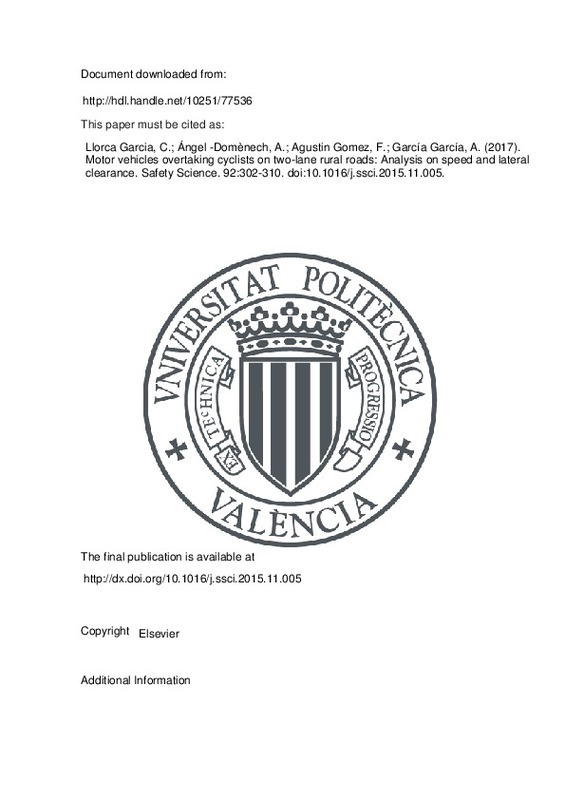|
Resumen:
|
Two-lane rural roads in Spain accommodate significant bicycle traffic volumes, mainly associated to sport and leisure activities. Motor vehicles' higher speed, weight and volume, compared to cyclists, represent a serious ...[+]
Two-lane rural roads in Spain accommodate significant bicycle traffic volumes, mainly associated to sport and leisure activities. Motor vehicles' higher speed, weight and volume, compared to cyclists, represent a serious safety concern when overtaking a bicycle. Spanish traffic rules determine a minimum 1.5. m lateral distance.This research characterised 2928 overtaking manoeuvres in the overtaking lateral clearance between motor vehicle and bicycle, as well as in the motor vehicle speed, in contrast with previous research. Two instrumented bicycles were equipped with laser rangefinders, a GPS tracker and three video cameras. They rode along seven rural road segments at a speed between 15 and 25. km/h, centred on the paved shoulder, or as close as possible to the outer edge. Besides, this methodology allowed the characterisation of the overtaken vehicle type, its left lane occupation as well as its interaction with opposing traffic flow. For each session, rider's general risk perception was also registered.The analysis suggested that lateral clearance is not the only factor that influenced rider's risk perception, although current standards are only related to it. On the contrary, a combined factor of lateral clearance, vehicle type and vehicle speed had a more significant correlation with the perceived risk. This agreed with literature models of transient aerodynamic forces between overtaking and overtaken vehicles. Results showed that effect of heavy vehicles on bicyclists was also strong. In addition to this, the combined factor of clearance and speed was higher on tangent sections where overtaking was permitted.
[-]
|







![[Cerrado]](/themes/UPV/images/candado.png)


